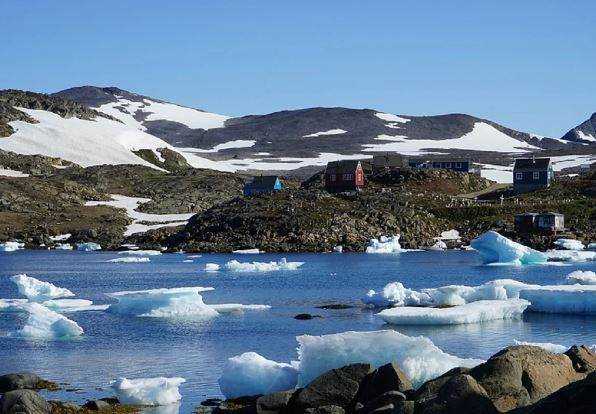
19-Sep-2020
Greenhouse Emission Leading To Rising Sea Levels
If the emission of greenhouse gases in the world continues to increase like this, by the end of this century, the global water level of oceans will increase by 40 cm. The biggest reason for this is the constant melting of Antarctica and Greenland ice sheets.
This result derives from an international study. There is so much water in these huge ice sheets that they can raise the water level of the oceans up to 65 meters. Researchers have expressed concern over increasing melting rates
Experts from more than three dozen research institutes around the world used temperature and ocean alkalinity data in many computer models and simulated potential losses in glaciers in Greenland and Antarctica.
He studied two situations closely. First, where humans will continue the current level of pollution and second, where by 2100, carbon will be reduced in huge amounts
Researchers found that ice loss in Antarctica would increase the water level by 30 cm by the end of this century. While Greenland's contribution will be 9 cm. This will have a very damaging effect on the whole world, which will increase the destructive powers of storms and the homes of people living on the shore will start sinking repeatedly.
Even in the case of low emissions, the sheet of Greenland will increase the water level of the oceans by three cm by the year 2100. Whereas in the industrial era till now this level has increased by only one cm.
Anders Leverman, an expert on climate and ice sheets at the Postdam Institute for Climate Impact Research, says that it is not surprising that if we heat up our planet more snow will melt. But it is in our hands how soon and how much we let the sea level rise.
By the beginning of the 21st century, icebergs of West Antarctica and Greenland had accumulated as much weight as ice melt. But this balance has been disturbed for the last two decades.
Last year, a record 532 billion tonnes of snow was lost in Greenland itself, due to which the water level of the oceans increased by 40 percent in 2019 itself. The United Nations Intergovernmental Panel on Climate Change (IPCC), in a special report on the Earth's frozen land, has predicted that by 2100, the ice of Greenland will melt and raise sea water levels by 8 to 27 cm.
READ HERE MORE : Why Sunday Sleeplessness Occurs ? Know Reasons, Solutions
At the same time, it is estimated in this report that Antarctica will contribute from 3 to 28 cm. Earlier this month, a study published in Nature Climate Change said that the damage caused from 2007 to 2017 matches the IPCC's very extreme situation forecasts. It was also predicted that by 2100 the water level of the oceans would increase by 40 cm.
This study is published in a special edition of the journal Cryosphere. Its authors say that the study emphasizes the increasing role of emissions on the world's oceans. Its principal researcher, Sophie Nowicki, says that the biggest uncertainty is how much ice sheets will actually contribute to sea-level rise. Much depends on the climate. In this case, Leverman says that we know that something will happen, just do not know how bad it will be.

Content Writer
I am a content writter !
Join Our Newsletter
Subscribe to our newsletter to receive emails about new views posts, releases and updates.
Copyright 2010 - 2026 MindStick Software Pvt. Ltd. All Rights Reserved Privacy Policy | Terms & Conditions | Cookie Policy